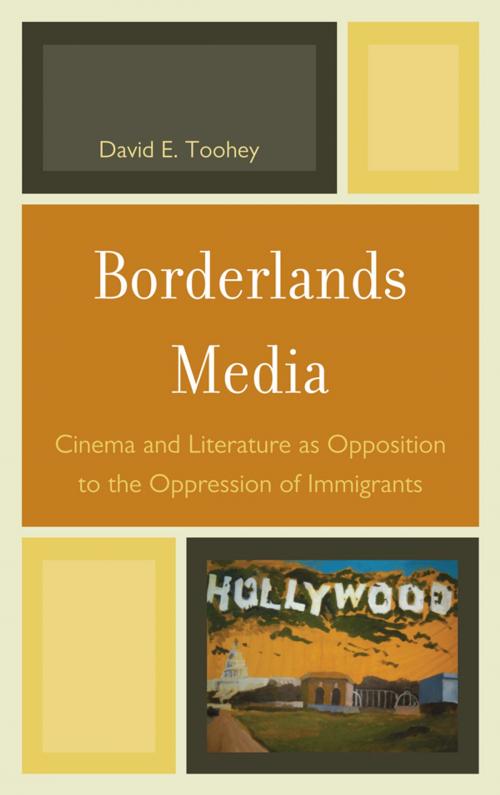Borderlands Media
Cinema and Literature as Opposition to the Oppression of Immigrants
Nonfiction, Social & Cultural Studies, Political Science, Government, Civics, Politics, Civil Rights, Public Policy| Author: | David Toohey | ISBN: | 9780739149539 |
| Publisher: | Lexington Books | Publication: | March 15, 2012 |
| Imprint: | Lexington Books | Language: | English |
| Author: | David Toohey |
| ISBN: | 9780739149539 |
| Publisher: | Lexington Books |
| Publication: | March 15, 2012 |
| Imprint: | Lexington Books |
| Language: | English |
David E. Toohey’s Borderlands Media: Cinema and Literature as Opposition to the Oppression of Immigrants is an in-depth analysis which explores the immigrant experience using a mixture of cinema, literary, and other artistic media spanning from 1958 onward.
Toohey begins with Orson Welles’s 1958 Touch of Evil, which triggered a wave of protest resulting in Chicana/o filmmakers acting out against the racism against immigrant and diaspora communities. The study then adds policy documents and social science scholarship to the mix, both to clarify and oppose undesirable elements in these forms of thought. Through extensive analysis and explication, Toohey uncovers a history of power ranging from lingual and visual to more widely recognized class and racial divisions. These divisions are analyzed both with an emphasis on how they oppress, but also how cinematic political thought can challenge them, with special attention to the philosophy of Gilles Deleuze. David E. Toohey’s Borderlands Media is an essential text for scholars and students engaged in questions regarding the effect of media on the oppression of immigrants and diaspora communities.
David E. Toohey’s Borderlands Media: Cinema and Literature as Opposition to the Oppression of Immigrants is an in-depth analysis which explores the immigrant experience using a mixture of cinema, literary, and other artistic media spanning from 1958 onward.
Toohey begins with Orson Welles’s 1958 Touch of Evil, which triggered a wave of protest resulting in Chicana/o filmmakers acting out against the racism against immigrant and diaspora communities. The study then adds policy documents and social science scholarship to the mix, both to clarify and oppose undesirable elements in these forms of thought. Through extensive analysis and explication, Toohey uncovers a history of power ranging from lingual and visual to more widely recognized class and racial divisions. These divisions are analyzed both with an emphasis on how they oppress, but also how cinematic political thought can challenge them, with special attention to the philosophy of Gilles Deleuze. David E. Toohey’s Borderlands Media is an essential text for scholars and students engaged in questions regarding the effect of media on the oppression of immigrants and diaspora communities.















